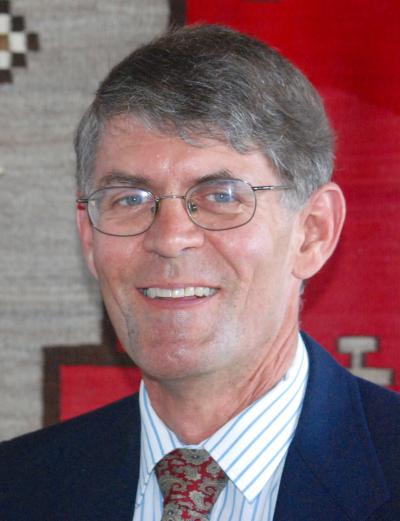NMSU professor advises U.S. Department of State, U.S. A.I.D.

"I have become involved through projects with the U.S. Forest Service International Programs office in applying genetics and genomics technology to address these issues," Milligan said. "This is a perfect application of the basic science of population genetics to the solution of major international criminal activities."
Milligan's work is a result of his selection as one of 12 Jefferson Science Fellows for 2012-13. The College of Arts and Sciences professor is the first in the state of New Mexico to be named a Jefferson Science Fellow. Milligan has been working with officials at the U.S. Department of State and the U.S. Agency for International Development since last August.
"Dr. Milligan is developing approaches that will have lasting impact on the solution of important scientific and societal problems, and he will bring these real-life applications of biology back into his classes at NMSU," said Ralph Preszler, biology department head and program director for the NMSU-Howard Hughes Medical Institute's (HHMI) Science Education Program. "His Jefferson Fellowship also will pave the way for undergraduate and graduate students at NMSU to apply for internships with his collaborators in Washington, D.C., and around the world."
Since summer, Milligan has worked on several projects with people from many different countries, traveling to Peru and Germany as part of U.S. delegations. He will also be representing the U.S. in Brazil and Indonesia, and may soon visit China. He previously represented the United States at an international meeting on timber tracking technologies.
"I hope to serve as a catalyst by providing useful scientific background, increasing the level of understanding and pushing appropriate policies and projects forward," Milligan said. "In the process of doing this, I hope to raise the profile of NMSU as a locus of expertise that can play a significant role in the future development of this area."
Milligan's research interests include population genetics and demography, conservation biology and molecular sequence evolution. His lab focuses on quantifying the rates at which evolution proceeds and in elucidating the rules governing evolutionary change of ecological and molecular traits.
After the year is over, Jefferson Fellows return to their home institution, but continue to serve as a resource to the State Department and USAID for an additional five years.
"This is likely the most prestigious appointment I have received, as it involved being selected through a national competition based not only upon scientific distinction, but also the ability to communicate science effectively, and to engage successfully with the policy community," Milligan said. "This unique bridging of multiple dimensions and skills sets this award apart from many others."


